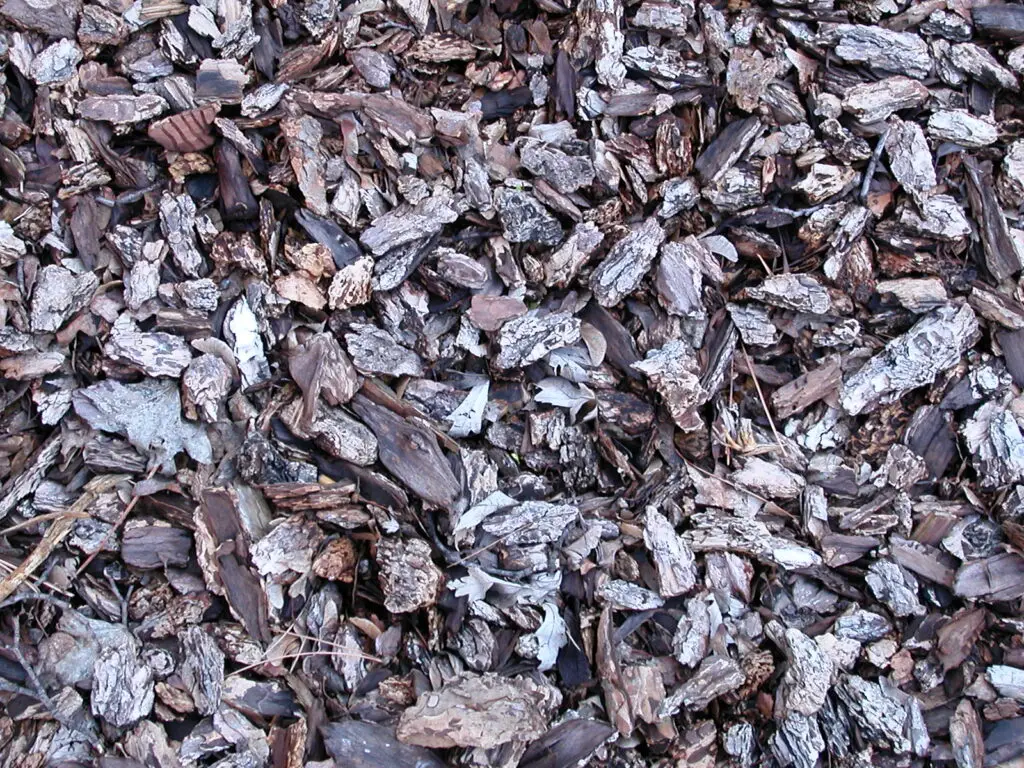How To Store Mulch In A Garage? (All You Need To Know!)
garagemadesimple.com is a participant in the Amazon Services LLC Associates Program, an affiliate advertising program designed to provide a means for sites to earn advertising fees by advertising and linking to Amazon.com . The website is also an affiliate of a few other brands.
How To Store Mulch In A Garage?
If you are a gardening enthusiast, then of course you are constantly dealing with mulch, compost & topsoil. But what do you do if you have bought more mulch than you need immediately? So, How to Store Mulch in a Garage? Can you even store mulch in a garage?
You can store mulch in a garage. You must make holes in the plastic bags in which the mulch comes or transfer it to plastic containers which have holes on the container lid. Mulch will not “sour” if it has good air circulation. Stored mulch should also be kept dry and away from high humidity and moisture.
If you have the option you should store mulch in the garden shed or in a lean to shed. You can also store larger quantities of mulch in the open, provided you keep it between two tarp sheets. Just make sure that there is enough air circulation but rain or snow does not get in.
In this post I explain the different types of mulch, why organic mulch should be kept dry but have enough air circulation and how to store mulch in a garage.
What is Mulch?

For the gardening pro, mulch needs no introduction. For the beginner, mulch is any material that plays the following roles in your garden. Mulch
- Covers the topsoil and makes it visually more appealing. In other words it helps landscaping.
- Retains moisture and nutrients and releases them gradually into the topsoil.
- Suppresses weed growth
- Prevents frost heaving in winter
Mulch can be either organic or inorganic.
Organic Mulch
Organic mulch is some part of a tree, shrub or any other plant. Basically anything that is natural and biodegradable. Some popular organic mulches are wood chips, shredded tree barks, grass clippings, pine needles, dry leaves or just plain straw.
Inorganic Mulch
Inorganic mulch could be synthetic or plastic pellets, chips, nets or woven fabric. Stone, pebbles and gravel can also be used as mulch. They do not look as natural as their organic counterparts (though stones & pebbles can give your garden a Japanese Zen look!)
The advantage of synthetic mulch is that while they hold onto moisture on the ground and last longer, they are a lot easier to store too. Of course they do not add any nutrients to the soil and are not biodegradable either.
Do you want to learn more about mulch? 110-Why Mulch Matters in Every Garden: What You Need to Know by Joe Gardener is an excellent resource!
Does Organic Mulch Invite Pest Infestation?
Bagged organic mulch that you buy from a home improvement store is not likely to have termites or any other pests that you should be worried about.
Organic mulch sold in stores is usually wood chips. The chipping machine, all but destroys any termites that may have been there in the wood itself. Further, if some do survive, they will die a quick, natural death, once they are separated from their colony.
Termites, carpenter ants and other wood eating pests do love to feast on wood. But they prefer solid wood, not shredded wood, which is mulch.
You will see termites, ants and other pests in the mulch that you spread in your garden. But they are not there to eat the mulch. They are there because mulch keeps the soil moist and they love the moistness.
The bagged organic mulch that you buy from a store, should be bone dry. If you store it such that it remains dry, you will not have pests infesting the dry mulch. Make sure that your garage concrete floor is not damp and the garage walls are waterproof.
Moreover, termites do not love all wood. Cypress heartwood, melaleuca, California redwood, cedar and eucalyptus are on the hate list of termites.
Cedar and cypress mulch are particularly effective in repelling bugs like termites, roaches, beetles, ants etc.
Cedar Oil is an effective non-toxic, natural pest deterrent. So are some other natural oils such as orange oil, clove bud oils and neem oil.
Does Organic Mulch Decompose and Release Unpleasant Odors?
When organic mulch is spread out in the garden it will decompose. That is one of its key functions. It enriches the soil by decomposing and releasing the nutrients to the soil.
Decomposition is a natural process enabled by moistness and microbes. Natural decomposition will not produce any unpleasant odors. In fact you are more likely to relish the smell of nature.
However, if mulch has been piled too high then it can go “sour” and release unpleasant odors of methane or ammonia. The reason is simple. The mulch at the center has no access to atmospheric oxygen.
The decomposition is then anaerobic (without oxygen). The microbes in the mulch can then produce byproducts such as methanol, acetic acid, ammonia gas, and hydrogen sulfide gas. None of these smell good.
How to Store Mulch in a Garage for a Few Weeks?
Now let us say you are in a situation where you have bought a fair amount of bagged mulch but can not spread it out all of it within a day. You do not have a garden shed or a lean to shed (or they are overflowing with other stuff).
Can you store the bagged mulch in your garage for a few weeks?
The answer is YES!
You just need to take care of two small things. Bagged mulch from an improvement store comes in sealed airtight polythene bags.
The mulch can not get any air circulation and this is bad news! You do not want your mulch to go “sour” due to the anaerobic (without oxygen) decomposition. Just puncture a few holes in the polythene bag using a pair of sharp scissors or a screwdriver.
This will allow air circulation and the mulch will remain good till you are ready to spread it out in your yard or flower beds.
You also need to ensure that moisture does not get to the mulch. Never store it on the garage floor or stacked against the garage wall. Store them on racks (not adjoining garage walls) instead.
Storing them close to a dehumidifier or a garage heater will be helpful too!.
How to Store Mulch in a Garage for a Few Months?
Mulching is done either in spring or in fall. And you can of course do it in both seasons. Each has its pros & cons. Sometimes you may buy enough bagged mulch for both the seasons.
If you do this in fall, say, then you are faced with the problem of “how to store mulch in a garage” over the winter months.
The solution is quite similar to the one for storing it for a shorter duration. You still need to ensure air circulation but also ensure no moisture gets in. For longer term storage you should transfer the mulch from the polythene bags to Mulch Storage Containers.
Mulch Storage Containers can be made of plastic or a non-rusting metal. Really, just a 5 Gallon plastic pail with a nice lid will do the job. All you have to do is to drill 5-10 holes in the lid (½” dia should do) to allow for circulation.
As the mulch is in plastic pails, you can store them on the garage floor as well. Storing them on racks (not adjoining garage walls) is even better. However, do not stack them as then you will be blocking off the ventilation holes.
Storing them close to a dehumidifier or a garage heater will be helpful too!.
As the storage will be for a longer duration, I recommend that once in a while (maybe once a month), open up the lid of one pail and empty the contents to another empty mulch storage container. This way the mulch gets mixed up nicely with fresh air.
Do this for all the pails. You will just need one extra empty pail to complete the job, irrespective of whether you have 5 or 20 pails of mulch in your garage.
When spring arrives, you will find that it is quite easy to carry the 5 Gallon pails of mulch to be spread in your yard.
How to Store Mulch in Bulk?
If you have bought mulch in bulk then of course you will not be able to store it in your garage.
The best way to store bulk mulch is rather simple. Layout a large piece of tarp in your backyard and stake it securely to the ground. The tarp should be large enough for all the mulch you plan to store.
Keep in mind that you want to spread the entire mulch, pretty much evenly over the entire tarp. You do not want to build a heap.
Remember a heap will lead to anaerobic (without oxygen) decomposition, which is smelly.
Cover the mulch layer with another slightly larger tarp so that the mulch is well protected from rain or snow. At the same time make sure that the top tarp sits loosely, and some of the edges are free, allowing for air circulation.
Thank you very much for reading the post. I do hope you found it informative and useful.






